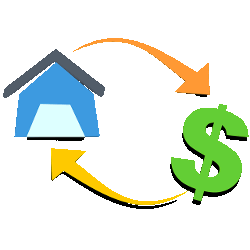Should you Rent or Buy the place you call Home
The fact that mortgage rates in Canada continue to hover near historic lows means that, for many people who are coming to the end of the lease, it’s time to consider whether to renew that lease or pursue a home purchase. Quite a few factors go into this decision — not the least of which is whether you are financially ready for the surprises that home ownership can bring. Let’s look at whether you should sign another year’s lease or start looking to buy a house.
Determining whether you should continue to Rent or Buy
1. How long do you plan to stay where you are?
Most experts agree that it takes about five years in a house for you to be able to cover the closing costs associated with the purchase with the savings that you get from buying. So if you’re not sure you’re going to be in that place that long, then consider signing another lease. That gives you flexibility in case you have to move sooner than you thought. Unloading a house in an iffy real estate market can end up being a real financial trap.
2. Are you ready for the surprises that can hit homeowners?
Let’s say that you drain your savings to make that down payment and squeak into your home. You can pay your mortgage each month, along with your insurance premium, but a few months later a windstorm devastates your roof. You have insurance, but you still have to pay that deductible (often 1 percent of the home’s value). Would you have that in savings? Life isn’t very fun without a roof, and you probably don’t want to have to take out another loan in order to pay for that deductible. Instead, consider building your savings as you live under another year’s lease.
3. Can you make your mortgage payment and other housing expenses with less than 30 percent of your monthly gross income?
This amount includes any private mortgage insurance (PMI), homeowner’s insurance and mortgage payment. Ideally, this should actually be less than 28 percent of your income if you want the best available interest rates on your loan. If you can do this, then you should consider pulling the trigger on your purchase. Keeping these numbers below 28 percent means that you have a lot of disposable income available in case you need to make some repairs or you have some contingencies come up that you didn’t expect — and that’s the way life usually works. As soon as you have your house squared away, your son falls and breaks his arm. Or everyone’s healthy, and then your microwave shorts out and starts a kitchen fire. You have to be prepared for anything.
4. Is your after-tax mortgage payment roughly equal to what you were paying for rent?
One way to determine whether you can make the transition from a renter to a homeowner is to see what the difference is between what your current rent payment is now and the money you would have to pay each month on your mortgage, including insurance and other related costs. If the new amount is the same or lower — and you have the down payment saved up — then you should definitely consider making the move over to home ownership. After all, it’s not going to mean any more money out of your pocket each month. Instead of throwing more money onto the rent fire, you’ll be building equity in a home. So you’re still shelling out a considerable sum, but now you’re making an investment in your own future instead of paying for the convenience of living somewhere.
5. Will your other debts leave you house-poor?
Being “house-poor” means that the expensive of your rent or mortgage is so high that you don’t have much money left over to do anything else, such as save for a new car or have much of a social life. If your housing expenses will be under 28 percent of your gross income but you’re still paying off a big pile of other debts to the point where you will be strapped each month, consider waiting to buy the house until some of those other debts are off the table. That will give you greater peace of mind — and will keep you from having stress each month when payments come due.
Still having trouble deciding? Give one of our specialists at Amansad Financial a call today…and we will help you decide the best course for you and your family.

